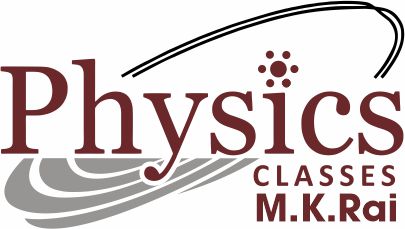What is JEE Advanced?
JEE Advanced stands for Joint Entrance Examination Advanced, which is a national-level entrance exam conducted in India for admission to undergraduate engineering programs (Bachelor’s, Integrated Master’s, and Dual Degree programs) at the Indian Institutes of Technology (IITs) and the Indian School of Mines (ISM).JEE Advanced is conducted by one of the seven zonal coordinating IITs under the guidance of the Joint Admission Board (JAB). Only candidates who have qualified for JEE Main are eligible to appear for JEE Advanced.

The top 2,50,000 candidates who qualify for JEE Main are eligible to appear for JEE Advanced.
JEE Advanced is a computer-based test (CBT) and comprises two papers, each of three hours duration. The exam is conducted in two sessions, usually in the month of May or June. The exam tests candidates’ knowledge in the subjects of Physics, Chemistry, and Mathematics.
The scores obtained in JEE Advanced are used for admission to the undergraduate engineering programs offered by the IITs and the ISM. The admission process includes a counseling process known as Joint Seat Allocation Authority (JoSAA) counseling, in which candidates are allotted seats in various IITs and other participating institutes based on their JEE Advanced rank and their choice of program and institute.
It’s important to note that JEE Advanced syllabus and exam pattern may be subject to change, so it’s important to regularly check the official website of the conducting IIT for updates.
JEE Advanced Eligibility
Sure, here are the eligibility criteria for JEE Advanced exam:
Age Limit: Candidates should have been born on or after October 1, 1996. However, there is a relaxation of 5 years for SC, ST, and PwD candidates.
Number of Attempts: Candidates can appear for JEE Advanced for a maximum of two times in consecutive years. A candidate who has been admitted to an IIT earlier or whose admission was canceled after joining an IIT is not eligible to appear for JEE Advanced.
Qualifying Exam: Candidates must have qualified JEE Main and be among the top 2,50,000 candidates (including all categories) in Paper-1 of JEE Main. The category-wise distribution of the number of candidates who will qualify to appear in JEE Advanced is as follows:
– General Category: 46.5%
– OBC-NCL: 27%
– SC: 15%
– ST: 7.5%
– PwD: 5% (horizontal reservation)
Educational Qualification: Candidates must have passed their Class 12th examination or its equivalent with Physics, Chemistry, and Mathematics as compulsory subjects.
Note: It’s important to note that the eligibility criteria may be subject to change, so it’s important to regularly check the official website of the Joint Admission Board for updates.
Attempts
As per the JEE Advanced eligibility criteria, candidates can appear for JEE Advanced for a maximum of two times in consecutive years. This means that a candidate can attempt the exam two times in two consecutive years after appearing for JEE Main.
It’s important to note that if a candidate was admitted to an IIT earlier or if their admission to an IIT was canceled after joining, they are not eligible to appear for JEE Advanced. Additionally, candidates who have already attempted JEE Advanced twice are not eligible to appear for the exam again.
Exam Frequency
JEE Advanced exam is conducted once a year, usually in the month of May or June. The exam is conducted in two sessions, and it is a computer-based test (CBT). It’s important to note that the exam frequency may be subject to change, so it’s important to regularly check the official website of the Joint Admission Board for updates.
